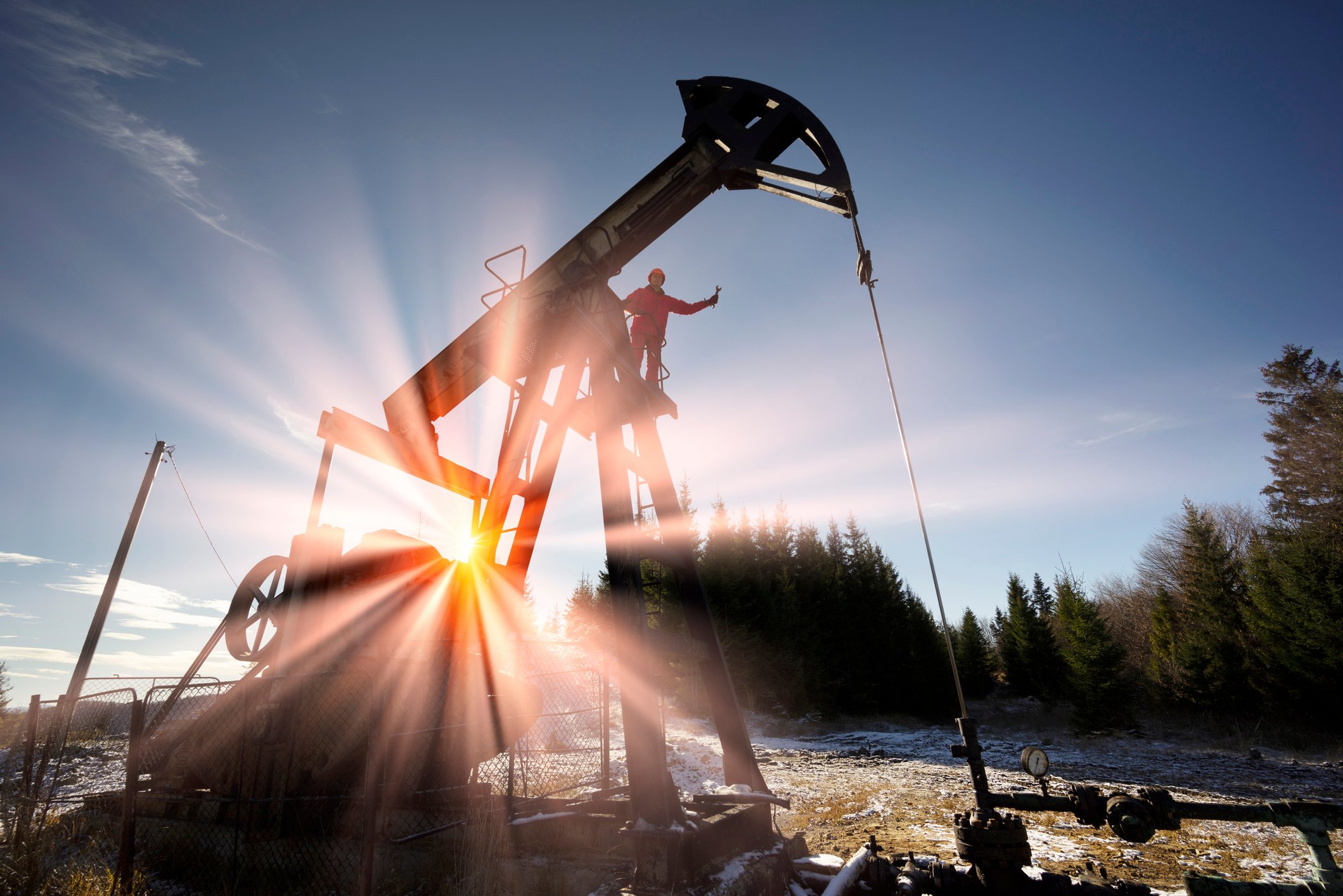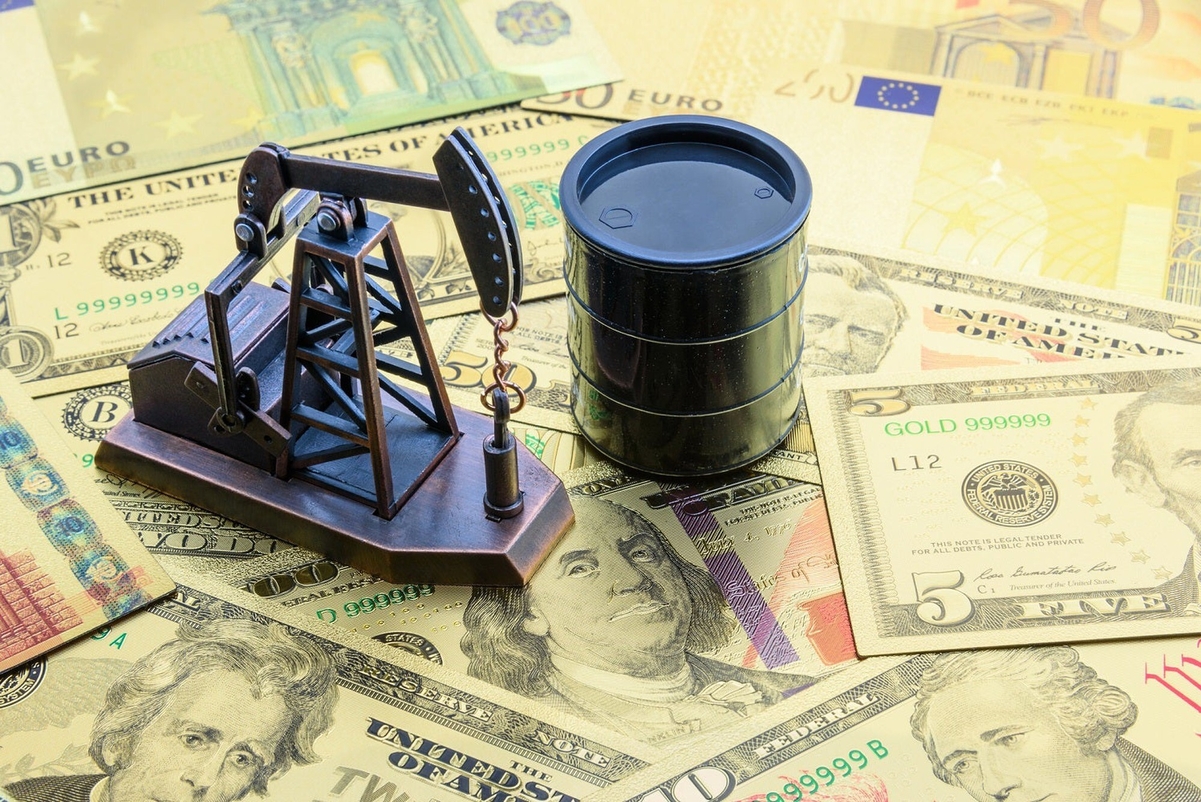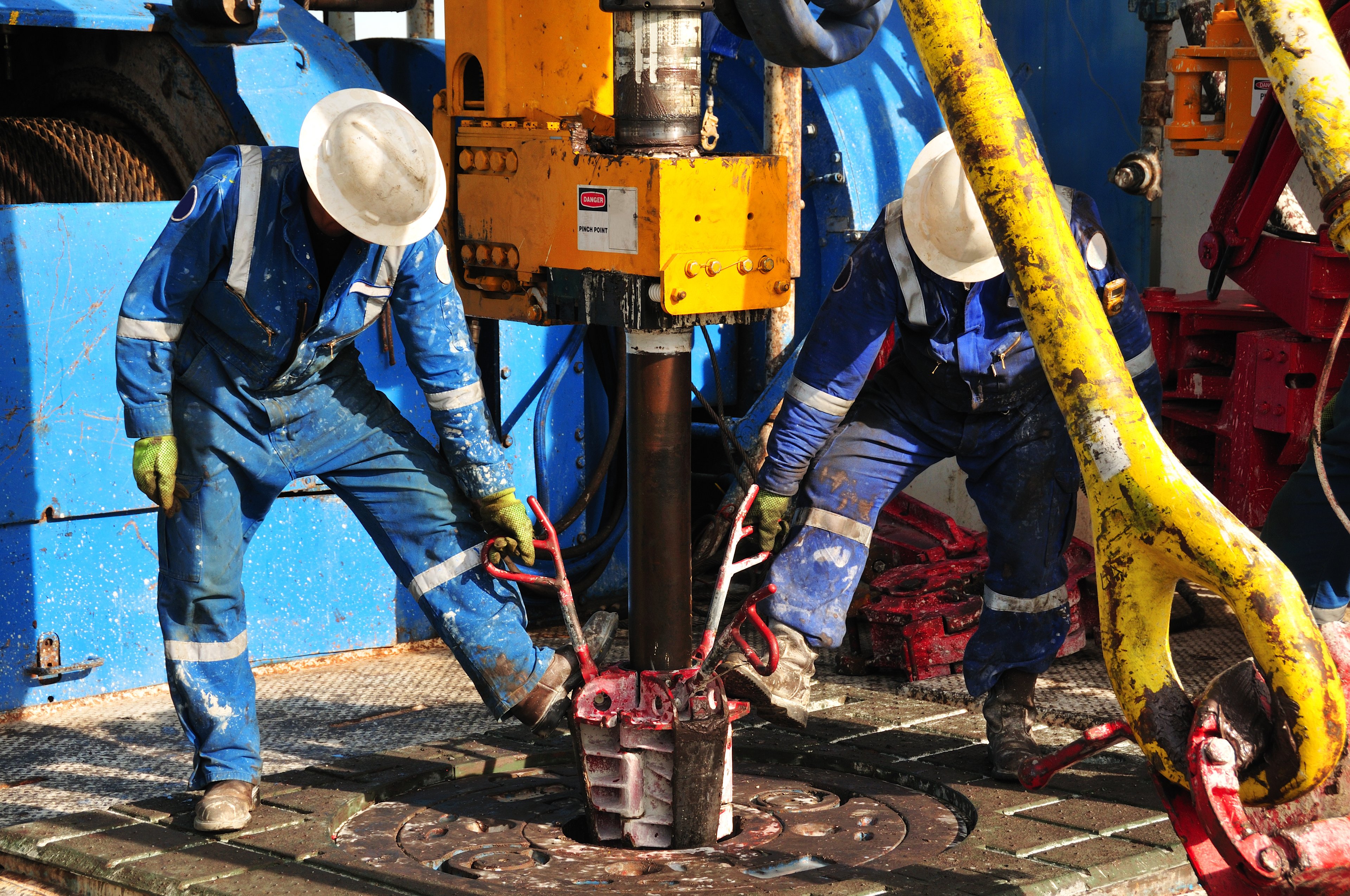Earlier this year, Devon Energy (DVN +4.18%) unveiled its intention to become a 100% U.S.-focused oil growth company. As a result, it aimed to sell the rest of its Canadian assets as well as its gassier properties in the U.S. so it could give its four oil-focused shale positions its undivided attention. That strategy shift is already paying dividends, which was the focus of the energy company's third-quarter conference call.
The third-quarter highlight reel
Devon's CEO, Dave Hager, discussed the company's strategic progress on the call, stating that "the third quarter was another one of exceptional execution for Devon across all aspects of our business." He continued:
The bold strategy we announced earlier this year to transform to a high-quality, multi-basin U.S. oil company is working and it is working quite well. By sharpening our focus on our very best U.S. oil assets, the operating teams at Devon are delivering results that are exceeding production (expectations), capital efficiency, and cost-reduction targets by a wide margin. This trend of excellence is now well established over multiple quarters and evidenced by several noteworthy accomplishments year to date.
He then ran through several of them on the call. First, he said the company is earning high returns on the money it's investing in new wells. He pointed out that the "fully burdened rate of return on our capital program has exceeded 25%, and the cash return on total capital employed is also strong trending well above 20%." He also said that the company "acted with a sense of urgency" to reduce costs. As a result, it's on track to achieve 80% of its cost-savings target by year-end. Because of these factors, Devon has produced a gusher of cash flow. Add in asset sales, and it's "now on track to generate more than $3 billion of excess cash this year."

Image source: Getty Images.
Finally, he concluded by stating: "With this abundant cash flow, we are delivering on our promise to reduce leverage and return capital to shareholders. Our balance sheet is exceptionally strong at 1 times net debt to EBITDA, we have increased our dividend by 13%, and [we] are on track to reduce our share count approximately 30% by year-end." That's a remarkable accomplishment, as Devon now has one of the best balance sheets in the sector, even as it has returned an industry-leading amount of cash to its shareholders.
More good things to come
Devon's success in 2019 sets it up to thrive in the coming years. The company now has significantly more financial flexibility, which puts it into a position to prosper at lower oil prices.
That's clear in its preliminary plan for 2020. It currently expects to spend between $1.7 billion and $1.9 billion on developing its oil-rich shale assets next year, which should fuel 7% to 9% oil production growth in those regions. Furthermore, it only needs oil to average about $48 a barrel to finance that plan, which sets it up to generate significant free cash at the current price. If crude is around $55 a barrel next year -- a bit below the current level of $58 --, it can produce $400 million in excess cash after funding its capital program and dividend. That's enough money to repurchase another 4.5% of its stock at its recent trading price. Oil growth on a per-share basis would "jump into the mid-to-high teens" as a result, according to Hager. Meanwhile, if oil prices trend higher next year, it will generate even more cash, which it could use to repurchase additional shares.
Devon's plan also has lots of downside protection, given its low breakeven level. If crude prices plunge, it could pull back spending and grow at a slower rate. Add in its top-notch balance sheet, and it can easily handle whatever happens next in the oil market.
The market has yet to realize Devon's success
Devon's bold strategy shift is delivering results. However, the market hasn't given the company any credit for its success, considering its stock has barely budged this year. So it could produce significant gains as its plan keeps paying dividends, which makes it an oil stock to keep an eye on over the coming year.






